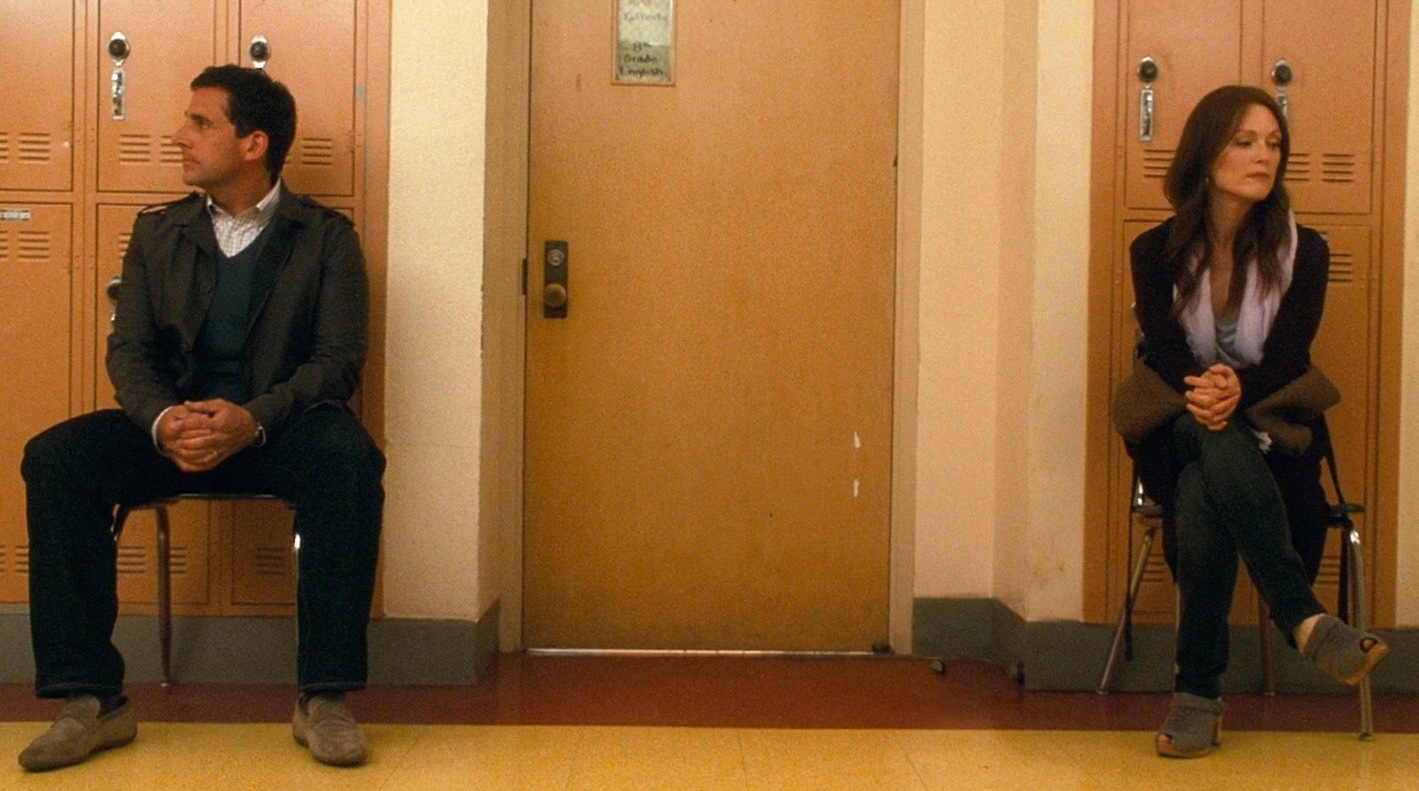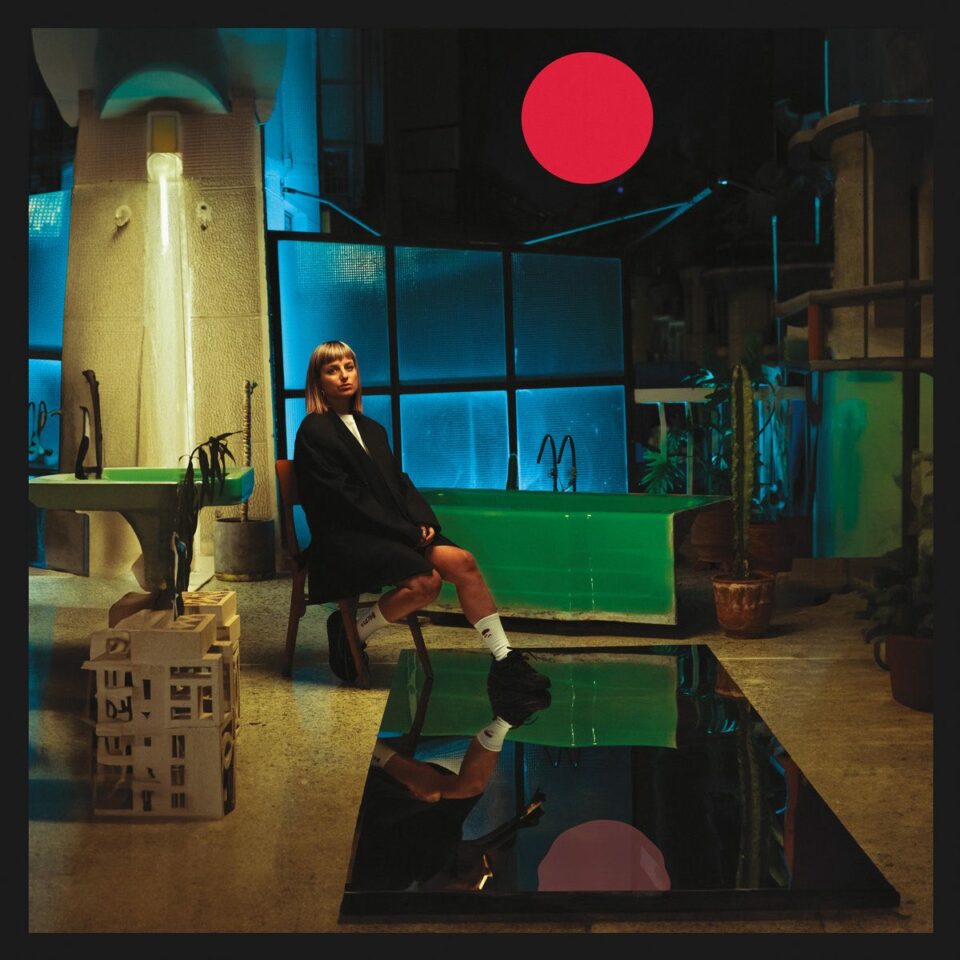Welcome to Rearview Mirror, a monthly movie column in which I re-view and then re-review a movie I have already seen under the new (and improved?) critical lens of 2021. I’m so happy you’re here.
When Crazy, Stupid, Love came out in 2011, I remember there being talk of, “finally, a clever studio rom-com.” Media types had been sounding the death knell for the genre for a decade and were glad to find that American actors and audiences could handle something that was a cut above, say, Date Night, or Friends with Benefits (both good, but broad). In particular, Emma Stone’s chemistry with Ryan Gosling was praised and would prove lasting: they co-starred again in Gangster Squad (who cares) and then La La Land, nabbing Stone an Oscar. And it all started with Crazy, Stupid, Love, a trio(ish) of intersecting love stories that holds a 79 percent on Rotten Tomatoes. A. O. Scott of the New York Times called it “on balance, remarkably sane and reasonably smart,” giving it four out of a possible five stars. It also earned positive notices from the Post and has high ratings from customer reviewers on sites like IMDb and Amazon Prime. I’m telling you, I hated it.
I remember walking out of the theater and immediately listing the plot’s many faults and inconsistencies: what suburban town did the central family live in that somehow has one ultra-hip nightclub that everyone goes to every night, such that Ryan Gosling could meet both Steve Carell and Emma Stone there, but Emma Stone and Steve Carell never run into each other? What mother in her right mind would find nudes her teenage daughter has taken with the purpose of giving to the dad of the family she babysits for (…um…), and give those nudes to the girl’s father, silently, and while the child is in the room? Yes, Emma and Ryan doing the lift from Dirty Dancing is sweet, but you know what movie you could watch if you like that moment? Dirty Fucking Dancing.
To recap: Steve Carell loves his wife, Julianne Moore, but she cheats on him with Kevin Bacon, so he briefly takes up with his kids’ teacher Marisa Tomei (who deserves so much better than this unprofessional, sex-crazed nothing of a role) and a few other women along the way. Meanwhile, his pubescent son has a crush on his babysitter, who has a crush on Steve Carell, who is getting a midlife makeover from Ryan Gosling. And Ryan Gosling is into Emma Stone, who is with Josh Groban until she’s with Ryan Gosling, and then—this is the twist—Emma Stone is Steve Carell and Julianne Moore’s first daughter that they had while young, and no one figured it out because they call her by a misleading nickname. (Writer Dan Fogelman absolutely loves it when characters are revealed to be connected at the end of the story—he’s also behind This Is Us (trite but fine) and Life Itself (laughably melodramatic). To his credit, he also created the short-lived musical sitcom Galavant, which I liked a lot.) And Steve Carell is like, “Hey Ryan Gosling, you’re good enough to give me a makeover, because you’re a cad, but you’re not good enough to date my daughter, you cad.” But guess what? Eventually everyone gets to be with the person they want to be with! Including the son who…gets the nudes of his teenage babysitter! It became one of my favorite punching bags: the movie so Crazy Stupid I couldn’t believe anyone Loved it.
Watching it again now, the “errors” bug me less than they did. I guess the characters live in Century City, and maybe Century City has exactly enough young professionals to support a single hotspot (or maybe the studio only budgeted for one bar set). A boy with an all-consuming crush on his babysitter being rewarded even after acting quite, quite inappropriately…I understand the sitter’s impulse to be kind, even if she’s misguided. And I admire the way the movie makes its male leads truly unlikeable for the first half. Steve’s a bummer; Ryan’s a shallow player. The young son explicitly states his intention to keep pursuing his baby-sitter despite how uncomfortable it makes her, and even embarrasses her in front of their entire school. His dad not only praises this attitude, he mistakes it for maturity. Men! The one joke that’s most markedly aged, weirdly, is Carell’s observation that no one uses the Shakespearean word “cuckold” anymore; these days, everyone knows what a “cuck” is.
The point of the movie seems to be “settle down with the very first person you genuinely connect with and don’t let them go no matter what, even if they want you to.” Maybe it’s not so confusing, maybe it’s just childish.
Still, I once again got a little lost, this time trying to suss out everyone’s sexual politics. Julianne Moore is absolutely devastated that Steve Carell had sex with other consenting, single adults after she asked him for a divorce, after cheating on him. And listen, a character can be wrong. But everyone else sides with her, even though Carell is supposedly this amazing father, and a partner so supportive he keeps tending to his backyard even after he’s moved out of the house. Gosling’s sins are less easily forgiven—he does seem to really enjoy manipulating women, and watching Stone break down his armor is cute, if easy. Stone is flabbergasted that Groban needs more time to think about their relationship, and there’s a suggestion at the end of the movie that maybe teenage masturbation is the basis of true and lasting love. All of which is to say that the point of the movie seems to be “settle down with the very first person you genuinely connect with and don’t let them go no matter what, even if they want you to.” Maybe it’s not so confusing, maybe it’s just childish.
In fact, that’s the part that loses me. For the first, let’s say, 90 minutes, the movie’s a charmer, looking past its happy coincidences (more on that in a second). The different plot threads come to a head at a garden party where the male half of the cast beats each other up while the women look on, stomping their feet and yelling at the men to stop. Predictable, but it works in a technical sense: characters at odds must come into conflict.
I am willing to buy that these upper middle class white people would brawl. But the conclusion lost me. The young son gives a mopey speech at his middle school graduation, which Carell interrupts to tell a saccharine story and win his wife back. As the kids say, a bit cringe! There’s a reason Harry talked just to Sally at the New Year’s Eve party. The audience for such moments should be the theater audience, not hundreds of extras on set. I couldn’t suspend my disbelief, I couldn’t get past how awkward it was, I didn’t buy that any of these people would be charmed by it, and I was actually a little angry that this teenage brat continued to publicly humiliate his kind babysitter! Act foolish once, you’re a kid who hasn’t developed impulse control. Act foolish twice, you’re a future incel.
I think maybe the audience for this movie really is children, or families. Despite having, ostensibly, a lot of sexual encounters in the story, including one case of homemade underage porn, it’s pretty chaste. We don’t see or hear anything remotely graphic, even in a comedic way. In a non-political sense, this movie is bafflingly conservative. But charming. For the first hour at least. Before people start acting like psychos.
The dialogue isn’t bad. In fact, many scenes are funny and good, and it lures you into thinking you are watching a good movie. But you’re not. A movie can’t just be a bunch of scenes, you have to have something tying it together that’s stronger than the silly string used here.
In a non-political sense, this movie is bafflingly conservative. But charming. For the first hour at least. Before people start acting like psychos.
Romantic comedies have a reputation for relying on outlandish lies and impossible coincidences to generate plot. This is used both as an excuse to dismiss the genre and a justification for overlooking certain films’ flaws. It’s a rom-com, you know what you’re signing up for when you buy the ticket, so don’t complain. Don’t nitpick! Enjoy it! Take it for what it is! Relax! Have some fun! Stop being a fucking buzzkill and watch the pretty people kiss! Like, I do get it, but still I find this reasoning to be patronizing and far too easy. Romantic comedies are, actually, some of the most human movies, because they’re about things that actually happen to people. Life-changing events like witnessing a murder, running for office, or winning the lottery don’t happen to most people. They don’t even happen to anyone most people know. But almost everyone falls in love, and when you do, it feels like the biggest, most insane thing that ever happened to you. It’s why there are so many comedies that take place at weddings. People get weird! So while a romantic comedy might have a gimmick or employ some plot device that isn’t strictly speaking “realistic,” characters should still feel real, situations should seem grounded in some reality, things should make a kind of sense. This doesn’t.
I think over the past 10 years audiences have realized that elements of this movie are just no good, and thankfully, streaming makes it easy to cherry pick the scenes that do work (basically, anytime Gosling is on screen—the guy is funny!). If you want to watch it for the parts you like and look at your phone during the rest, fine. We’ve all picked the M&Ms out of trail mix and thrown the rest away. But with a cast this stacked I wanted chocolate cake, through and through. We, the romantic comedy–loving audiences of America, should demand nothing less. FL









